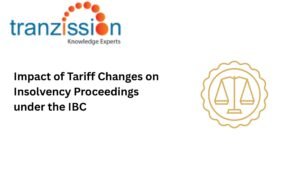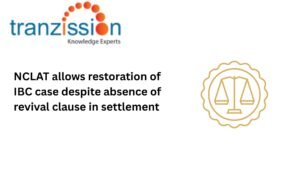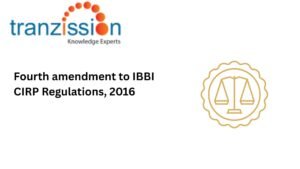
Handling Disputed Claims During CIRP
Table of Contents
Under the Insolvency and Bankruptcy Code, 2016 (IBC), a “claim” encompasses any right to payment, whether it is fixed, disputed, or unsecured. Handling Disputed Claims can occur due to disagreements over contract terms, quality of goods or services delivered, non-payment of invoices, or other contractual issues between stakeholders. Several landmark cases under the IBC have provided guidance on how to handle disputed claims, particularly regarding the assessment of the “bona fide” nature of a dispute.
Understanding Disputed Claims in Insolvency Proceedings
What Are Handling Disputed Claims Under IBC?
Handling Disputed Claims under the IBC refer to claims made by a creditor against a debtor that are being contested, challenged, or rejected due to legal, financial, or documentary inconsistencies. This involves a lack of supporting documents, excessive or inflated demands, and non-adherence to the timelines for the corporate insolvency resolution process (CIRP) or liquidation. Such claims often create conflict between secured and unsecured creditors.
Suggested reading: Role of Special Economic Zones in the Insolvency Process
Categories of Disputed Claims:
Handling Disputed Claims can include disputes about the existence of debt, quality of goods or services, or breach of warranty. Disputes can be over the security rights and priority of payments, determining whether a claim qualifies as financial or operational debt. There may also be claims related to statutory dues, taxes, penalties, and claims that depend on ongoing litigation or uncertain events.
Role of Liquidators in Adjudicating Disputed Claims
Liquidators as Quasi-Judicial Authorities:
A liquidator plays a “quasi-judicial” role in adjudicating Handling Disputed Claims during a company liquidation process, meaning they have the responsibility for independently assessing the validity of creditor cliams, verifying supporting documentation, and deciding whether to accept or reject them. Liquidators must assess the validity of claims based on financial records and contracts, maintaining transparency in claim approval or rejection and ensuring fair distribution of liquidation proceeds under Section 53 of IBC.
Legal Provisions Empowering Liquidators:
As per section 35(1)(a) and Regulation 30 of the Insolvency and Bankruptcy Board of India (Liquidation Process) Regulations, 2016 (hereon forward known as “the Liquidation Process Regulations”), liquidators have to verify the claims of the creditors and submit the claims submitted within 30 days from the last date for receipt of claims and may either admit or reject the claim, in whole or in part. Section 40 of the IBC shall either admit or reject the claims after its verification.
Judicial Trends on Adjudication of Disputed Claims
The landmark case of Swiss Ribbons Pvt. Ltd. v. Union of India established that while an RP under the IBC primarily has administrative functions, a liquidator does indeed act as a quasi-judicial body. Therefore, liquidators are required to independently evaluate and fairly adjudicate creditor claims when determining their validity and value during the liquidation process. This case emphasized that Liquidators and RPs have a role as quasi-judicial bodies, ensuring claims are fairly evaluated.
Suggested reading: Analysing Section 60(5) of the IBC
Challenges in Adjudicating Disputed Claims
Lack of Clear Guidelines for Claim Verification:
The IBC lacks a detailed framework for handling disputed claims, leaving decisions subjective and case-specific. As the legal principles may be ambiguous or open to interpretation, adjudicators must strive to reach a decision that fairly balances the interests of all parties.
Delays in Claim Processing:
Delays in processing disputed claims can occur due to several factors, complex legal issues surrounding claims, lack of clear documentation, disputes between creditors, the need for extensive verification, and the time-consuming nature of resolving disagreements. Further, creditors often challenge Liquidators’ decisions, leading to litigation before Adjudicating Authorities can delay the liquidation.
Conflicts Between Financial and Operational Creditors:
Under the IBC, financial creditors often receive priority treatment. Financial creditors and operational creditors have conflicts during insolvency due to this treatment, particularly when it comes to decision-making and the treatment of operational creditors.
Disputed Claims by Government Authorities:
Government authorities can claim dues payable to them, such as those related to employment, goods and services, or taxes. However, tax claims and regulatory penalties often remain unresolved, leading to conflicts in the distribution of proceeds in liquidation.
Best Practices for Resolving Disputed Claims Under IBC
Resolving disputed claims primarily involves improving the current insolvency framework to streamline the resolution process or liquidation. Liquidators should document detailed reasons for admitting or rejecting claims, thus enhancing transparency in the liquidator’s decision-making. The regulatory authorities should encourage mediation between the creditors, debtors, and liquidators, reducing unnecessary NCLT appeals. To avoid potential disputes, creditors must submit complete documentation and evidence upfront. As the IBC does not clearly state how to deal with disputed claims that are pending adjudication, therefore there is a need for clearer guidelines and faster resolution mechanisms
Conclusion
Disputed claims can impact the final resolution plan as the RP needs to consider the potential liability of the disputed claim when evaluating the viability of a proposed plan. When the RP cannot definitively resolve disputed claims within the CIRP, they can encourage parties to settle disputes through alternative dispute resolution mechanisms or initiate separate legal proceedings to determine the value of the claim after the insolvency process. Creditors must disclose any existing disputes regarding their claims during the claim submission process to ensure transparency and avoid potential complications.





